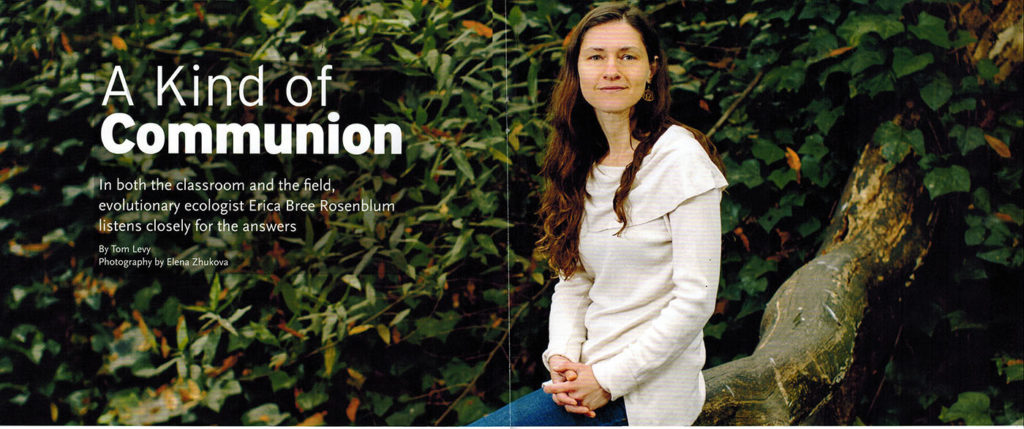
A Kind of Communion
In both the classroom and the field, evolutionary ecologist Erica Bree Rosenblum listens closely for the answers
CLIENT
Rausser College of Natural Resources — University of California, Berkeley
ASSIGNMENT
Wrote article for Breakthroughs, the college’s print and online magazine.
For Erica Bree Rosenblum, PhD ’05 Integrative Biology, the study and teaching of ecological genomics has always been as much about a spiritual connection with her subjects as an academic one. In the field, “you don’t just bring your intellect to bear. You’re in a kind of communion with the landscape, getting a sense of the interesting questions.”
A groundbreaking evolutionary ecologist and educator in the College of Natural Resources, Rosenblum has focused her research on two linked, yet outwardly opposing, biodiversity questions: How do new species arise, and why are we now losing so many at such an alarming rate? Rosenblum believes that her weightiest findings, based on analyzing lizard speciation in New Mexico, reinforce insights into how the earth has come by its wealth of plant and animal life, a process still underway across the globe. “Little environmental changes can lead to new species forming,” she says. “Taken over many millennia, that’s how we ended up with this phenomenal amount of global diversity.”
She first sought answers to the new-species question in the early 2000s as a grad student on a road trip. “I didn’t choose my dissertation project by reading a stack of books to select a study system,” says Rosenblum, now an associate professor of global change biology in the Department of Environmental Science, Policy, and Management. “As a graduate student, I drove across the country waiting to find a place that said, ‘Pick me.’ That’s how I chose the White Sands system I’ve been studying for 20 years.”

